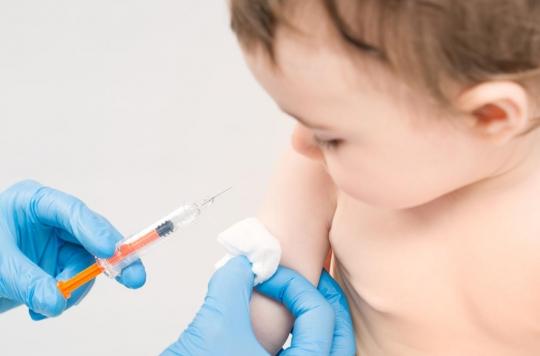In 2018, nearly 20 million children did not receive vaccines likely to prevent deadly diseases, alert WHO and UNICEF in a joint annual report on Tuesday.

“More than one in ten children do not receive all the vaccines they need”. This is the alarming finding of the annual report on global vaccination rates produced by the World Health Organization (WHO) and the United Nations Children’s Fund (Unicef) presented on Monday 15 July. Thus, in 2018, nearly 20 million children did not receive vaccines that could prevent deadly diseases, most of them living in poor or conflict-affected countries.
“If these children become ill, they are at risk of serious complications, and are less likely to have access to the treatments and care that would save them,” reminds the WHO.
In detail, the global coverage rate for the basic vaccination against diphtheria, tetanus and pertussis (DTP) and measles has stagnated at 86% since 2010. If this rate is high, it remains too low. Indeed, a 95% rate is needed globally, in all countries and communities, to prevent outbreaks of vaccine-preventable diseases.
350,000 measles cases reported in 2018
This has been demonstrated in particular with the measles epidemic of recent months. In 2018, 350,000 cases of this disease were reported worldwide, more than double the figure for 2017. And the year 2019 does not look any better since these cases have increased fourfold in the first quarter compared to the same period last year, reports the WHO.
“Measles is a real-time indicator of where we need to focus our action to fight preventable diseases (…) Because measles is a highly contagious disease, an outbreak targets communities that have not benefited from vaccines from the access, cost or, sometimes, complacency. We must spare no effort to vaccinate every child,” said Henrietta Fore, UNICEF Executive Director.
But measles has exploded even in rich countries where vaccination coverage is better. This could be explained by “the proliferation of false information” about the measles vaccine, according to the director of the immunization and vaccines department at WHO, Kate O’Brien, recalling that in 1998 a study had linked this serum to autism. The WHO has since regularly criticized these data and it has also been established that the author of the work, the Briton Andrew Wakefield, had distorted his results. Nevertheless, some received ideas die hard.
HPV vaccine taken into account for the first time
For the first time in its report, the UN takes into account another very controversial vaccine: that against human papillomaviruses (HPV)used before entering the active sexual life and allowing in particular to protect young girls against cancer of the cervix.
Last year, most wealthy countries incorporated the vaccine into their national programs, making it available to one in three girls worldwide. Despite everything, even in these countries, and especially in Francethere are many skeptics, some even going so far as to advance that the HPV vaccine increases the risk of uterine cancer.
Thus, data on all vaccines demonstrate that there is a “dangerous stagnation in vaccination rates around the world, due to conflict, inequality and complacency”, worries the United Nations.


.















